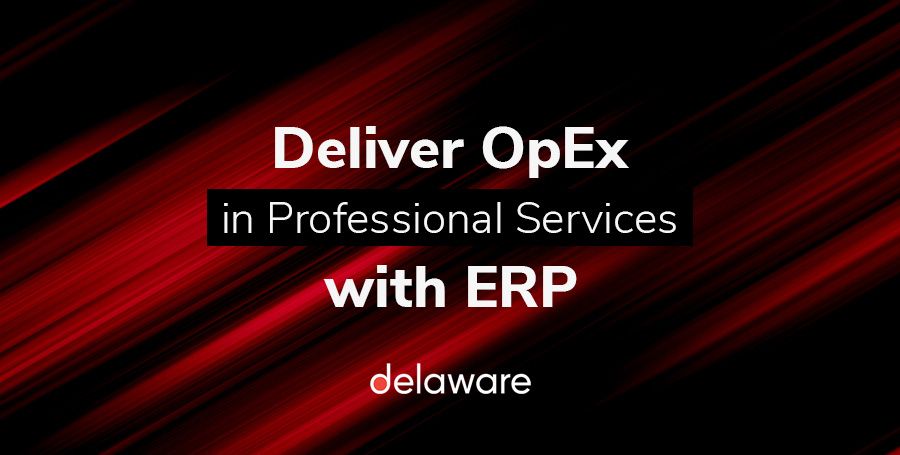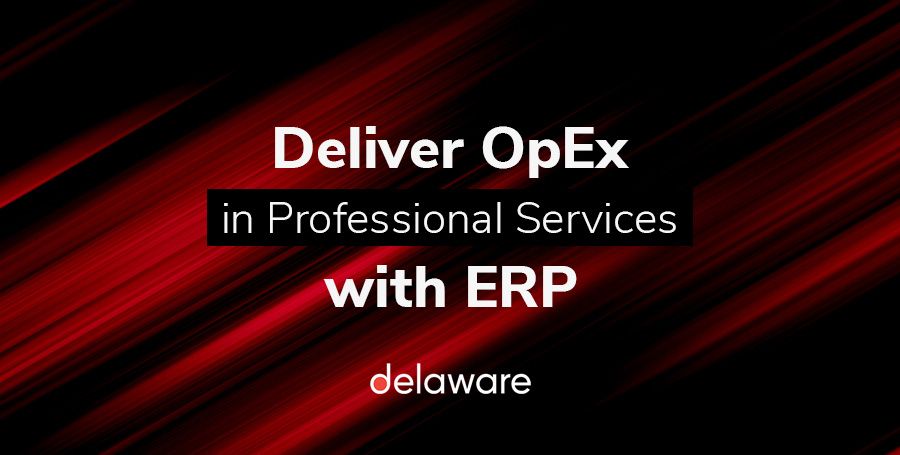A range of operational challenges are placing professional services firms under considerable strain. Rory Clarke, a Solution Architect at Delaware, outlines how modern ERP technology can help industry players navigate three of the main challenges they currently face: talent, time tracking and revenue management.
The pandemic has necessitated a shift to virtual and hybrid working models, requiring businesses to transition to high-quality cloud infrastructures to offer employees the best digital experience.
However, this is only one challenge among many facing the sector at this time of flux. From acquiring and retaining talent to revenue management and the accurate recording of time, companies are seeking new ways of meeting these core challenges head-on.

The people challenge
The ongoing economic recovery, combined with a shift in power from company to employee and more flexible working models, are all fuelling a war for talent. Data compiled by KPMG and the Recruitment & Employment Confederation showed that the number of UK job vacancies recently rose to above 1 million for the first time on record.
An increase in demand for labour has led to professional services firms fighting over the best available candidates.
The current digital skills shortage raises the stakes considerably, pushing businesses to step up their game in order to retain top talent. Compensation and reward are no longer sufficient: while jobseekers rank salary as the most important factor in a job description, it is the area most easily bettered by a firm’s competitors.
Businesses must now deliver a raft of additional benefits to remain attractive in this tight job market. For example, employees are increasingly demanding experiences that give assurance their work matters. Research shows companies that invest in their unique employee experience make four times more profit than those that don’t, as engaged employees are more efficient and produce higher-quality work.
Therefore, the success of a professional services firm increasingly hinges on its ability to deliver flexible working policies that suit employees, safe and comfortable work environments, and opportunities to develop within a thriving team culture.
In line with this, employee wellbeing is rising to the top of the corporate agenda. Forward-thinking firms are developing a suite of staff benefits and support programmes, ranging from independent financial advice to signposts to external sources of support, such as wellness coaching. Interest-free loans, including season tickets and early pay access, are also growing in popularity as employers vie to secure and retain the best talent.
For any professional services firm focused on remaining competitive and bringing in quality recruits, such support schemes and initiatives must be core to their working model.
Tracking time
Once firms have secured the right people, they need to utilise their workforce effectively and record their output easily and accurately. This often proves challenging, as many businesses do not have an integrated system where they can schedule and allocate resources in terms of skills, competency, locations, or availability.
Some even rely on spreadsheets to manually manage processes like time and attendance recording. This lack of real-time data presents a risk to professional services businesses, as they do not have the insights needed to maximise the utilisation and efficiency of their workforce.
Ensuring work is completed and recorded, be that office-based, shift-based or field-based, is essential. Therefore, businesses must find a simple way to manage constraints on planning and scheduling. The latest tools allow firms to smartly plan and schedule people based on these typical constraints.
An integrated project planning tool that connects to HR, finance, and procurement enables businesses to ‘see forward’ and make the best decisions to manage the profitability of projects and portfolios.
Further reading: A time tracking maturity model for the consulting industry.
Taking account of revenues
Revenue management is another key area of concern for professional services firms. Billing preparation is usually a complicated and slow process, with many businesses resorting to using spreadsheets in an attempt to consolidate disparate information into a format that is relatable for customers. These firms often have inefficient processes, as they spend excessive amounts of time collating the information, correcting errors, and justifying and explaining it to stakeholders.
Some businesses also struggle to ‘manage’ the recognition of revenue and decouple this from the invoicing process. Consequently, having an integrated finance solution is key to removing these issues, allowing time to be streamlined and converted into revenue. The right solution will empower firms to more precisely tailor the information presented to the customer for approval, therefore removing the ‘query ping-pong’ many experience.
Equally, new technologies allow businesses to simplify sales and payment processes to create a faster, more effective experience. As financial complexity grows, ensuring a smooth and frequent cashflow is an essential step towards business continuity and resiliency.
Finding a way forward
To address these wide-ranging challenges, firms must deliver flexible working policies and a safe and comfortable work environment. In line with this broad talent management ethos, they should work with providers to build a ‘digital exhaust’ of employees and contingent workers to bridge the opportunity and delivery capability gap.
Businesses must also achieve visibility of staff with the right skills and availability across internal and external resource pools. Intelligent time recording is a vital tool in realising this, as it makes it easy for employees to record their time – and for firms to track it. By ensuring enhanced reporting and recording of time, coupled with real-time visibility of project data, firms can benefit from vastly improved revenue management.
This approach can be strengthened further by simplifying and harmonising billing and payment processes. Connecting people, time, and revenue allows businesses to generate greater profits, while the latest enterprise resource planning (ERP) technology enables organisations to streamline and transform the customer experience.
ERP technology also allows firms to manage their entire workforce, control spend categories, and deliver digital services using channels and models, thereby ensuring they remain competitive in an ever-changing environment.




